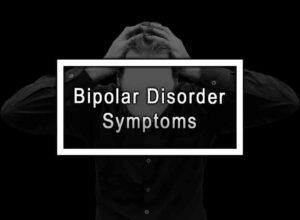Here Are Some Benefits And Tips For Effective Journaling For Mental Health
Journaling has been a form of self-expression since ancient times. It is a way of documenting thoughts, ideas, and memories that are important to us. While many people journal for leisure or as a hobby, it is also a powerful tool for managing mental health. Writing out our feelings and thoughts can be an opportunity to acknowledge and work through our emotions, helping us to understand ourselves better and find ways to cope with difficult experiences. In this article, we will explore the benefits of journaling for mental health and offer tips on how to get started.
Benefits of Journaling for Mental Health
Provides clarity and perspective
Writing out your thoughts and emotions can provide clarity around a situation or event that is causing you distress. It can help you gain perspective on your feelings, thoughts, and behaviors, and identify patterns or triggers. Journaling can also help you explore what is happening in your inner world, leading to greater self-awareness and insight.
Offers a safe space for expression
Journaling offers a safe and private space to express your feelings without fear of judgment or criticism. It lets you explore your emotions and thoughts without having to worry about other people’s opinions. This is especially important if you have experienced trauma or difficult circumstances that you may not feel comfortable sharing with others.
Helps you manage stress
Journaling can also be an effective way to manage stress as it helps you to release pent-up emotions, organize your thoughts and feelings, and make sense of them. It can also facilitate problem-solving by allowing you to brainstorm potential solutions to challenging situations. Writing down your frustrations, fears, and anxieties can also release tension and help you to feel more relaxed.
Boosts creativity
Journaling can also spark creativity and imagination. By writing freely without worrying about grammar, punctuation, or structure, you can let your mind wander and explore new ideas and possibilities. You can also use journal prompts or specific writing exercises to stimulate creative thinking.
Helps you track your progress
Journaling can help you track your progress over time. Writing down your goals and tracking your progress toward them can help you stay motivated. You can also review your older entries to see how far you’ve come and identify areas where you may still need improvement.
Tips for Effective Journaling For Mental Health
Write consistently
Set aside time to journal each day, even if it is just for a few minutes. Writing regularly will help you establish a habit and give you an opportunity to work through your thoughts and emotions as they arise. You can also re-read your past entries to see your progress.
Find the right medium
Consider what type of journaling medium works best for you. Some people prefer pen and paper, while others may opt for a digital journal. Some may even prefer voice recording or art journaling. Choose a method that feels comfortable for you and will allow for consistent and effective journaling.
Use prompts
If you’re not sure where to start, journal prompts can be an effective way to spark ideas and encourage reflection. You can also use journal prompts to focus on a specific topic or area of your life.
Don’t judge yourself
Journaling is a form of self-expression and creativity. Don’t worry about grammar, spelling, or punctuation. Write freely and don’t judge yourself or your writing. Remember, this journal is for you and no one else.
Experiment with different styles
There are many types of journaling styles that you can experiment with such as gratitude journaling, expressive writing, dream journaling, and daily reflection. Try out different styles to see what works best for you and what you find most helpful.
Conclusion
Journaling for mental health is a powerful tool for managing mental health. It offers a safe and private space to express yourself, gain clarity, manage stress, boost creativity, and track progress. Journaling for mental health can be challenging at first, but with practice, you can learn to use it as an effective way to work through your thoughts and emotions. Remember, journaling is a self-guided practice, and there is no right or wrong way to do it. So, grab a pen, paper, or your preferred medium and start journaling today! It can make all the difference to your mental health!
Journaling For Mental Health FAQ
Here are the most common questions about journaling for mental health.
What should I write in my mental health journal?
There is no right or wrong way to write in a mental health journal. You can write about anything that comes to your mind, such as your feelings, thoughts, experiences, dreams, goals, challenges, and successes. You can also write about your relationships, work, hobbies, or anything else that is important to you. The key is to write honestly and authentically.
How often should I journaling for mental health?
How often you journal for mental health depends on your personal preference and needs. Some people find it helpful to write every day, while others prefer to write once a week or when they feel particularly stressed or anxious. The important thing is to make journaling a regular practice to reap its benefits.
Can journaling for mental health replace therapy?
Journaling can be a helpful form of self-care that can complement therapy, but it cannot replace therapy. If you have a mental health condition or are experiencing significant distress, it is best to seek professional help from a licensed therapist or counselor.
Is it okay to share my mental health journal with others?
Whether or not to share your mental health journal with others is a personal decision. Some people find it helpful to share their writing with a therapist, trusted friend, or family member, while others prefer to keep it private. It is important to ensure that sharing your journal does not make you feel uncomfortable or vulnerable.
What if I don’t know what to write in my mental health journal?
If you don’t know what to write in your mental health journal, start by writing about your day, your mood, or any events or experiences that stand out to you. You can also try writing a list of things you are grateful for, or use prompts or guided journaling exercises to spark your creativity. Remember that journaling is a personal practice and there is no right or wrong way to do it. Write whatever feels natural to you.
More like this: Sleep Disorders Causes, And Treatments












